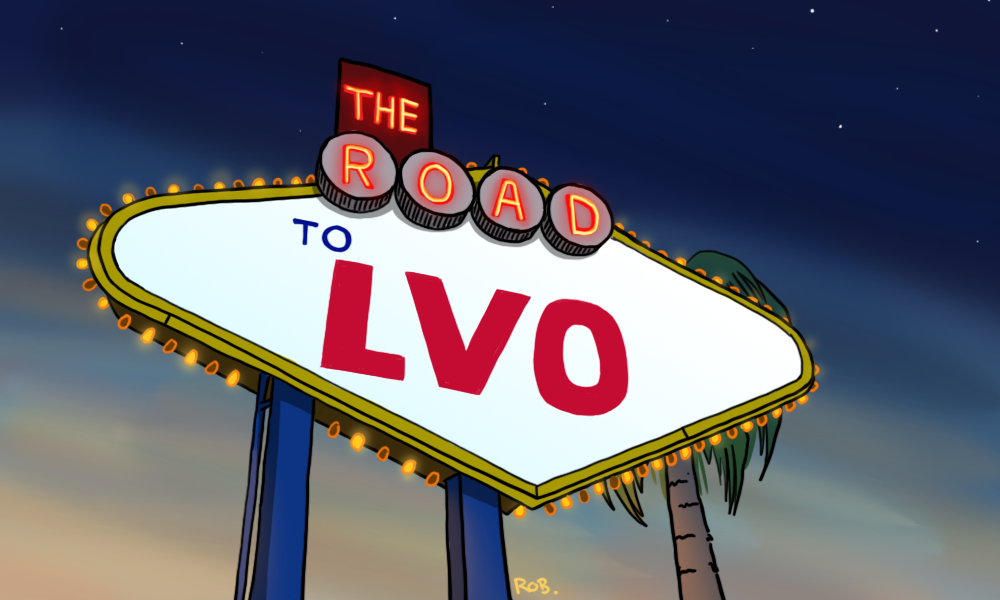The 2020 Las Vegas Open may be behind us, but the biggest tournament of the year always leaves a lasting mark on the meta and the players. In our post-event coverage, we’ve talked to the team that attended the event, interviewed the event’s winner, analyzed the meta and winning lists, and taken a detailed look at the games played. This week our coverage continues as we talk to some of the key organizers and staff for the event. Goonhammer’s James “Boon” Kelling engaged with the LVO senior judging staff – John “SaltyJohn” Weyermuller, Danny Ruiz, Chris Morgan, and Adam Solis – and interviewed them about the event and this year’s lessons learned.
The bios listed here are referenced from the Meet the Judges article at FrontlineGaming.org.
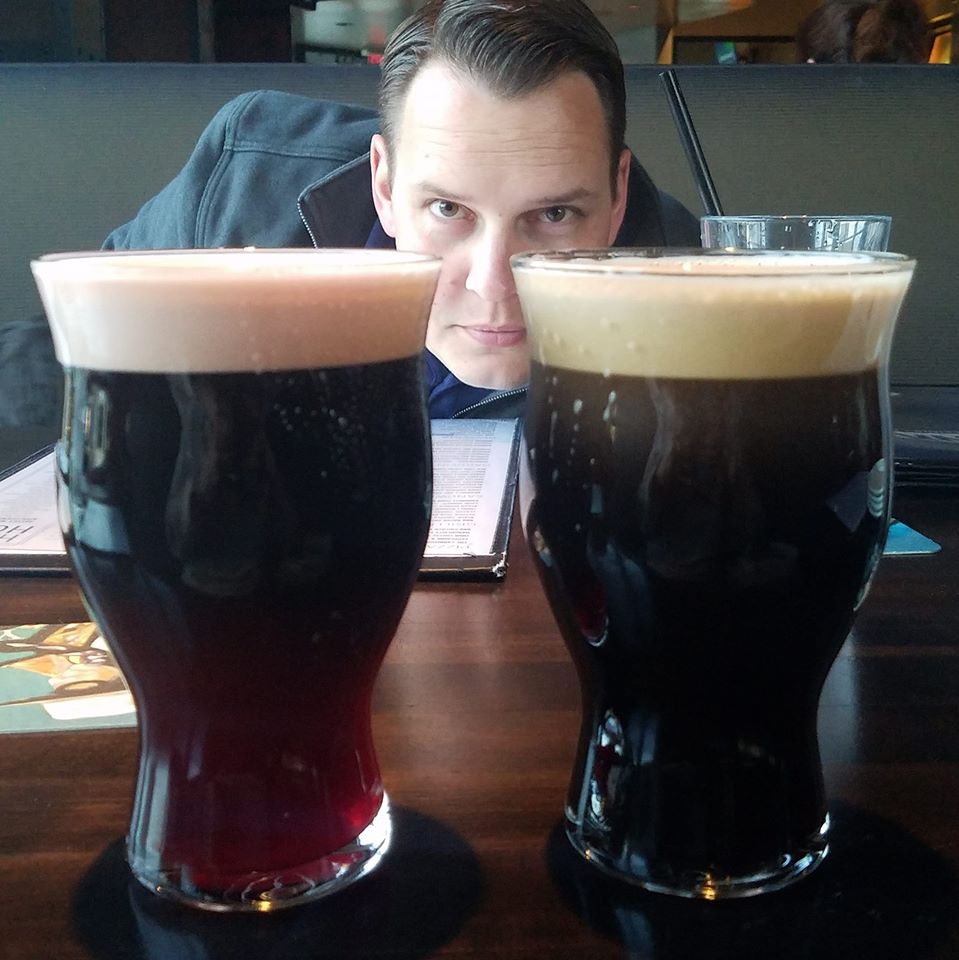
You probably know him for being prolific within the FLG community with his excellent ITC weekly update articles as well as his participation as a member of TFG radio – but SaltyJohn is the “face” of the LVO judging crew. You may be surprised to learn that he is not, in fact, the head judge. However, Adam Solis requested that I ask him to engage his “underlings” for this interview anyway.
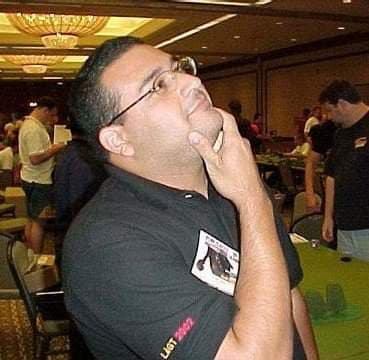
Adam Solis has been a judge at LVO since the third year of the event. Fellow member of the TFG radio team, Adam spends a lot of time actively judging many events around the SoCal area. He is a founding member of the LVO/ITC judging team.
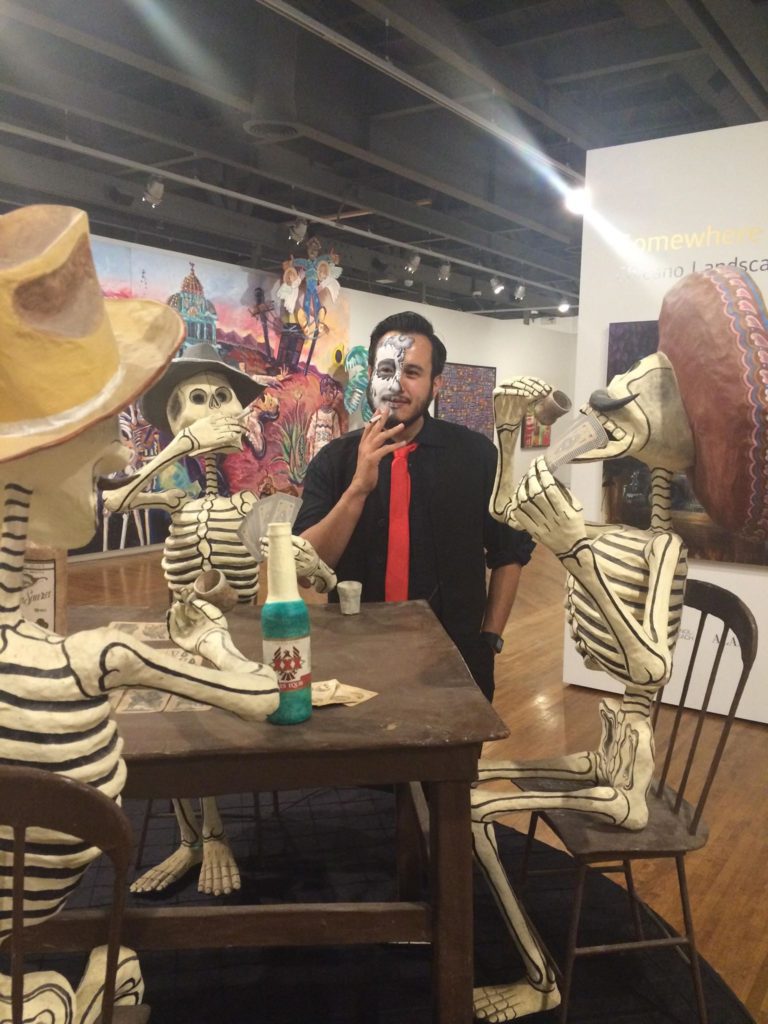
Daniel Ruiz has also been a judge at LVO since it’s third year. Danny is also a member of the TFG radio team, a founding member of the LVO/ITC judging team, and is apparently uniquely qualified to interpret the English language.
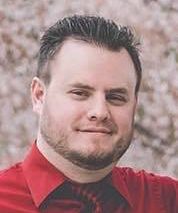
You may know Chris Morgan from his work on the Forge the Narrative podcast, has worked to build his local competitive community, and has been a long-time member of the LVO judging crew.
Q: LVO represents a herculean undertaking and commands one of the brightest spotlights in the community. Such a spotlight must put a lot of pressure on you as the judging team to execute – how do you prepare yourselves individually and as a team in the weeks leading up to the event?
Salty John: The team preps all year for the event. It usually begins early in the season when we help make the changes to the ITC Format, Missions, Chess Clock Rules, and Code of Conduct. That work is constant throughout most of the year. For the LVO itself, we finalize the format, act as a soundboard, and reminder system, for the FLG team which actually prepares the event physically. The logistics of the event being set up is handled by FLG, we come in to run the event.
Danny Ruiz (answering on behalf of the team): Reading a lot of FAQs, writing a lot in our group chats, and for me, hitting the gym. We start work for LVO in terms of judging in November after SoCal, so we have a lot of lead-up time to make sure that we are all on the same page and effectively collecting our answers.
Chris Morgan: Being organized means it is less stressful. We compile and review the most recent FAQs into a single PDF that we can use to keyword search in case a dispute arises. It helps in the day-of judging so we aren’t wasting players game time looking through stuff. Type in the keyword, hit search, and click right to the page. That’s more leading up to the event itself, but keeping up on the documentation is a year-long process. We review the missions, make edits and changes, discuss clarifications, and collaborate on the hot-button issues in the community. Personally, I also think about walking around a lot more in the weeks leading up to the event to warm up. I almost never end up doing it.
Adam Solis: We maintain contact with each other year-round in a judge’s chat. Because of our differences in locations it actually allows us to keep tabs on what is happening around North America, at least. You add into that the network of friends and judge colleagues we have collectively amassed over the years and it actually becomes a vast world-wide network. This network allows up to keep up to date on the latest trends, people and lists to watch out for and learn about as the year progresses and as we get closer to LVO
Q: How would you define your philosophy and approach to judging, individually or as a team? Is there a mindset you seek to instill amongst your peers?
Salty John: We are definitely a group of individuals. Some of us are harsher as judges than others. We also have our strengths and weaknesses, but as a team, we complement one another quite well. I am a terrible choice to paint judge so that’s usually handled by other members of the team while I am a decent point person to handle player to player, and rules questions, as I am the most recognizable member of the staff. While there isn’t a single “head” judge we have a loose hierarchy, which is helpful to us as a team.
Danny Ruiz: In general, we want to be neutral resources and adjudicators, not a 3rd player in the game. Our job is to facilitate the game, not run it. We want both players to feel any decision was reached fairly with deliberate intention.
Chris Morgan: The whole idea is to act as someone who can clear obstacles from players’ paths, or clear obstacles between players themselves so they can get back to the best parts of the game. We are also protectors of people’s enjoyment, so fairness is a big priority for us. The same rules have to apply to everyone. We also have to be decisive, direct, and unambiguous (tough in this game). We have a really solid group of peers who are dedicated to a good game and good player. We balance each other out with our separate skill sets and dispositions, so I think we work together pretty well. We don’t always agree on everything, and I like that since it means that we can find the right answer by picking at each problem. Our best answers come from hashing things out, and we respect and trust each other enough not to let it get personal.
Adam Solis: My approach is a series of steps and questions. I ask to see the relevant documents and move forward from there. This also ensures that the players actually have their codex. From there I figure out what the issue is and whether we,as a judge team, have dealt with or answered it before. I am usually pretty good at remembering if there was a FAQ about it so I know where to look for an answer. Once I answer, I move on. I try not to let the players argue me to change my mind and move on as quickly as possible, which is something I think many judges need to learn.
We are not there to have a discussion about the minute details of a rule, when we get to your table. We are there to make a ruling and move on.
Adam Solis
Q: What is something that you wish the player base better understood or grasped about LVO and the role of judges?
Salty John: If you need us to help you with a player that is behaving in an unsportsmanlike manner, or you think is taking advantage of loose play you have to advocate for yourself. No one will do it for you, you cannot be afraid to call for a judge and then calmly and clearly explain the issue(s) at hand.
Danny Ruiz: Our job is to help players enjoy their game more, and calling a judge to a table is not a slight to your opponent. Too many people are afraid to ask for clarification, which impacts their game.
Chris Morgan: One of the big misconceptions we deal with is the idea that we are employees or work for FLG when we aren’t. We are all volunteers. We also don’t write GW’s rules (neither does FLG), so venting to us about not ‘fixing’ 40K for the event doesn’t really help anything.
Adam Solis: We are not there to have a discussion about the minute details of a rule, when we get to your table. We are there to make a ruling and move on. We cannot ignore the other 700+ people that may also have issues. Also, Battlescribe is not the same thing as having your codex/rulebook.
Q: Did the size of the judging staff increase this year to account for the increased event size? Is there a linear relationship between the number of players and number of staff needed?
Salty John: Having more judge staff is never really a bad thing. The size of the event really does dictate, to a certain extent, the need for more or fewer judges. One issue we have run into is finding judges who are qualified to help with an event this large and with the pressure that goes into the LVO. It isn’t all about rules knowledge either, it’s more about having a grasp of the interactions the rules create and understanding how to rule in the best way possible when GW is mute on the topic.
Danny Ruiz: The LVO judges are volunteers, so there is no linear correlation, but yes, as the event increases, so does the need for more judges. This is especially true on Sunday when some judges are needed for the top 8 but more are needed for the RTTs or other events.
Chris Morgan: We grow, for sure, though a lot of that comes down to availability of volunteers. Most people come to LVO to play and would rather play than judge, so on off days sometimes people come and volunteer when not committed to rolling dice. The main judge staff has grown slowly, and we are committed to the whole event. Coverage is easy, since we rarely have to focus on dealing with more than a handful of people consistently, but we like to walk around and let people feel like we are accessible.
Adam Solis: It did. We added a couple more “junior” judge staff so that brought us to 9 judges. The rules for 8th edition allows for fewer judges needed for the number of players (just hard to collate all those rules) but the more judges you have on hand the better. I would say 1 judge can run a small major (58 players) by themselves. I have.
It is the stuff that is outside our control that causes the biggest fuss. We are the face of the event so a lot of the backlash from things not working ends up on our plate even if it is something we can’t do anything about.
Chris Morgan
Q: What are the biggest challenges you face as an LVO judge? Can you speak to any examples you encountered this year?
Salty John: This year’s largest struggle was not allowing my frustrations at the failure(s) of the BCP app, and subsequent pressure on us to keep the tournament going, to come out at the players. Keeping in mind that they were just as frustrated as we were and not “taking it out” on them, or BCP, or the other Judges for that matter. I personally find it hard to let go of when a judge made a call I vehemently disagree with knowing we’re all equals and the decision(s) we make stand whether we agree with it or not. I am sure that goes for the other judges toward some of my calls as well.
Danny Ruiz: There is the physical demand of walking anywhere from 7-15 miles per day. That event space is huge. There is also pressure from some to “punish” opponents which places an unrealistic expectation that just because two players are not communicating well that one person needs to be removed. Of course, judges are judges, but sometimes, things go wrong, and we have to essentially TO the event and find solutions, which can be challenging (see this year’s example).
Chris Morgan: Speaking honestly, it is the stuff that is outside our control that causes the biggest fuss. We are the face of the event so a lot of the backlash from things not working ends up on our plate even if it is something we can’t do anything about. Aside from that, there is a small percentage of players who tend to demand the most of our time, but since we deal with those same people year after year, we have more practice with that.
Adam Solis: The challenges vary year after year. As one of the longest-serving members of the group I have seen a few things, Whether it was alleged cheaters making the top 8, or the breakdown of the pairing system we use, there seems to be something new each year. A common one though is when players don’t like the answer you give so they want a second opinion. On day one I had a player that wanted to see someone else after I made a ruling they didn’t like. We had already established that the senior judge’s rulings at the table are final so there really is no other authority to talk to. I had to actually step in front of the player and put my hand out to stop them. At one point I just turned around and walked away, after telling him that is what I was going to do. They were apologetic and that they came by after their game to talk about it, and I was fine with that. You will have to listen to our podcast to find out who it was 
Q: There were a number of important changes to the LVO rules prior to the event. What was the thought process behind making those changes? What role, if any, did the judges play in that process?
Salty John: Fairness. All changes we make to the LVO, ITC, or rules questions we answer, are always undertaken with fairness to the most players in mind.
Chris Morgan: This is rather vague, but we do discuss necessary changes. The administrative stuff rarely has too much of an impact on player experience, and we are always discussing ways to do things better inasmuch as they are in our control. So far as the changes prior to LVO, it was all stuff that players demanded we address, and we felt it important to address as many things as we could prior to the event, as it can make or break certain lists depending on the interpretations of certain interactions. Sometimes we don’t get to choose the timing of when things pop up that need to be addressed either. The game is in a constant state of flux, and sometimes things need to be looked at in a short amount of time. We generally ask “would I as a player rather find out about this ruling before the event, or would I rather find out on the table and have my army not work the way I intended?”
Adam Solis: Ideas for changes usually come from FLG, maybe one of the judges depending on the time of year. The judges give a fresh pair of eyes outside of the normal circle as we come from different regions. Usually we decide whether something is worth changing, including, or removing, and vote on it.
I am not sure what changes we will make but I can assure you it will not just be business as usual next year. I personally have no interest in remaining to help if there is not a viable, and timely, back up to Best Coast Pairings, or whichever pairing app will be used, available for us to utilize.
Salty John
Q: Was there anything about the process you would have changed, or will change next year based on player response?
Salty John: I am not sure what changes we will make but I can assure you it will not just be business as usual next year. I personally have no interest in remaining to help if there is not a viable, and timely, back up to Best Coast Pairings, or whichever pairing app will be used, available for us to utilize.
Chris Morgan: So far as our roles as organizers and arbitrators, we did pretty well. We were able to fill in the gaps left by other elements that were not working as intended and keep the event running. We were able to respond to players in a timely manner. I think that we will definitely be looking into backup pairings options in the future, in whatever form we find to be best. The more ways we can find to get out of the players’ ways so they can game, the better our performance will be. It is an ongoing process.
Adam Solis: Haven’t seen player responses yet, formally, but I would change how we started the first round of pairings. We started fairly on time but there was some confusion for players that showed up late. Also, to make sure we have a proper backup in case anything happens with the pairings software.
Q: Do you miss playing in this event? What opportunities do you have to participate in LVO when you’re not judging?
Salty John: I only judge LVO, and I certainly miss playing in it. I have been asked by several events to come and help judge and I always tell them the same thing. If I am going to take the time, and money, from my family to travel to your event I want to play in it. LVO is an exception for a few reasons, the first is it’s the LVO and being asked to judge it is an honor. Also, I wouldn’t be able to go to it as often to participate as a player and I really enjoy being able to see everyone.
Danny Ruiz: We all love playing 40K, so we all “miss” the event in that way, but being able to help others enjoy the event is quite rewarding. If things run on time, we can participate in the later events like the Knight Joust.
Chris Morgan: I absolutely miss playing. I judge the event pretty much full-time and socialize after the rounds, but it keeps me really busy. Walking around and seeing how the event improves over the years, I often find myself wanting to roll dice on the tables. The quality of the event, the caliber of hobby of attendees, and the top-level terrain make it hard to pass up. Even so, it’s nice to feel a part of it.
Adam Solis: I don’t miss it at all. My time was 3rd/4th edition and that boat sailed a long time ago. We have very little opportunities to do much else. I think the only event we can really do is the unofficial Pub Crawl, which is very therapeutic some years.
Q: What’s the final tally on banned/removed Chaplain Dreadnoughts at the event? What about Thunderfire Cannons? Was the hysteria over the conversion requirements overblown?
Salty John: The hysteria was probably overblown but the requirements themselves are necessary to maintain the integrity of the game.
Chris Morgan: Personally I removed zero dreads or thunderfire cannons. I had to remind a couple ork players to get their grots out for gunners. The “scandal” was much overblown.
Adam Solis: Lol, that’s a John/Mitch question. I personally didn’t pull any. I think the conversion requirements were overblown as we had had these conversion approval rules for a number of years.
Q: In general, did you find there was any increase in the number of models you had to pull this year with the new requirements?
Salty John: I personally did not pull any models, but other judges were more into that aspect of judging.
Chris Morgan: I only had to pull one model from the event for not meeting the minimum hobby standard. The incremental standard increases we have been doing over the years have only produced positive results.
Adam Solis: Yes, only because it was one really strong unit (TFC)
Q: What was the most interesting ruling you were called to make at the event?
Salty John: I don’t recall any specific ruling as being particularly interesting, the Sisters of Battle rules required the most explaining to players, which is understandable considering how new the codex was.
Chris Morgan: I don’t know that there was anything particularly interesting, though we did have to come together to parse some complicated rule interactions in mixed-faction detachments.
Adam Solis: Drawing line of sight to a model’s base was one that came up a lot. Unfortunately GW does not clearly define what a “model” entails so for LVO the judge team decided that a model’s base is not part of the model so cannot be used for LoS purposes.
Q: What are some of the most common issues you run into? Are there any rules that you wish every player would read up on?
Salty John: The general ITC rules and missions. It amazes me each year how many players seem to come to the LVO without a working knowledge of the format and missions. Then again, a lot of players want to just come and have fun, which is totally fine.
Chris Morgan: My biggest issue is players not consulting their rulebooks before asking for a ruling, and it is even worse when they don’t have the books at all (print or digital) and try to pull up a transcribed summary from an app. Also, if you call a judge over to arbitrate something like a unit measurement, model placement, or LOS issue, don’t touch the models and move them around before we can take a look at it. Especially don’t move it when we are trying to measure it.
Adam Solis: People asking about rules they could easily find in their rule pamphlet or codex. “How far can unit X move?” and the like are common ones. I know it can be a long day and sometimes people are just lazy, but a lot of questions can be answered by looking in your codex. Whenever I come to a table I ask to see the relevant rule from their codex. It also allows me to check and see if they have their codex.
We tend to go on the side of RAW, but if RAW isn’t clear then we err on the least-powerful version of the interpretation.
Chris Morgan
Q: What’s your process if you’re called to make a ruling where there seems to be a genuine ambiguity in the rules?
Salty John: I attempt to see if I can find a sensible RAW conclusion, if that doesn’t exist, or ambiguity still exists, we as a team rule in the most conservative manner possible.
Chris Morgan: We tend to go on the side of RAW, but if RAW isn’t clear then we err on the least-powerful version of the interpretation. We haven’t come across many exploits that haven’t been toned down in FAQs when ambiguous situations or uncommon interactions arise.
Adam Solis: Usually I see if there is any type of order of operations I can follow. If not, I try to find a similar rule or ruling that helps with the issue. It is easier to find an answer if there is some sort of precedence from GW that we can point to. If nothing I will try to go with the most conservative reading of a rule just to be safe.
Q: Would you say a player using casino dice is indicative of a bad person, or the worst kind of person?
Salty John: I use casino dice…
Danny Ruiz: Depends on how well-painted their opponent’s army is.
Chris Morgan: We’re less worried about the dice than about the player. Casino dice, for all the pretentiousness that can be associated with them, are at the very least easier to read than some of the custom dice out there. Even GW’s dice like the new Sororitas or the Nurgle-themed Kill Team dice are tough to read from standing distance, particularly if players have fast hands.
Adam Solis: Lol, no just misguided if they believe they are balanced. They are balanced for a craps table not a dice tray
(on what they’d change about 40k)
Danny Ruiz
There needs to be a specific and enforced Style Guide where specific words/phrases are used and always mean the same thing.
Q: Being a rules judge gives you a novel perspective on the rules of 40K. If there was one aspect of 40K that you could change, what would it be and how would you change it?
Salty John: Terrain rules. I would absolutely change the terrain and Line of Sight rules to make more sense and be more intuitive. With the variety of terrain out there, the rules need to be more abstract in my opinion.
Danny Ruiz: There needs to be a specific and enforced Style Guide where specific words/phrases are used and always mean the same thing.
Chris Morgan: A definitions page and a clear written style guide. I’m going to beat that drum until I see this happen. It would save us all so much trouble.
Adam Solis: Just one? I guess actual clarity in the order of operations. I think that would go a long way to fixing a lot of the questions we get.
Q: Playing in a competitive environment for several days in a row can be stressful for the players and the judges. What advice would you give to people interested in playing in a tournament to ensure they have a good time?
Salty John: Drink more water and less alcohol during the event.
Danny Ruiz: Be realistic in your goals. Unless you have spent months preparing for the event with the single intention of winning, you are not going to win, so don’t put that pressure on yourself. It is better to go 1-5 and with 6 great games that were fun with people that you would have never met otherwise than it is to go 5-1 and hate most of your games. For competitive players, practice/practice/practice beforehand and make sure your list is well vetted by your team. For everyone: drink lots of water, eat snacks, and remember to sit down during your opponent’s movement phase.
Chris Morgan: Walk in understanding the context of the social contract in a tournament setting. Drink plenty of water. Bring some painkillers. You are going to feel more tired each day, so try not to take it out on your opponent. Remember most of the people are there to have fun. People have fun in different ways. You are in charge of your own fun. Play to win. Win with grace. Lose with dignity. Keep your eyes open. Look at what you could do better before blaming other people for your losses and mistakes. You’re going to meet someone cool to roll dice with. You might catch someone having a bad day. Celebrate the best parts of the hobby you come across. Never hesitate to tell an opponent something cool about their army or their tactics when it comes up. Accept compliments with humility. You’re probably going to bust a model. That cool new thing you got ready for the tournament will die horribly. “That guy” isn’t as common as you think. If you think everyone else is “that guy,” then you are probably “that guy.” If something is wrong now, say something now instead of getting mad about it later. You’re going to sleep well when you get home.
Adam Solis: Hydrate and have some snacks. If you don’t eat or drink during the tournament you will become very agitated very easily. Also, try to go into with realistic goals. If you go into your first tournament thinking you’re going to win it, you will be very disappointed and upset. Baby steps, Start with goals that you will hope to improve while attending tournaments. Next thing you know you’re at the top table in the finals
Thank you gentlemen for all your hard work and being willing to answer our questions! We look forward to what you guys reveal in the coming year. And as always, if you, the reader, has any questions or feedback, shoot us a note in the comments below or email us at contact@goonhammer.com.
